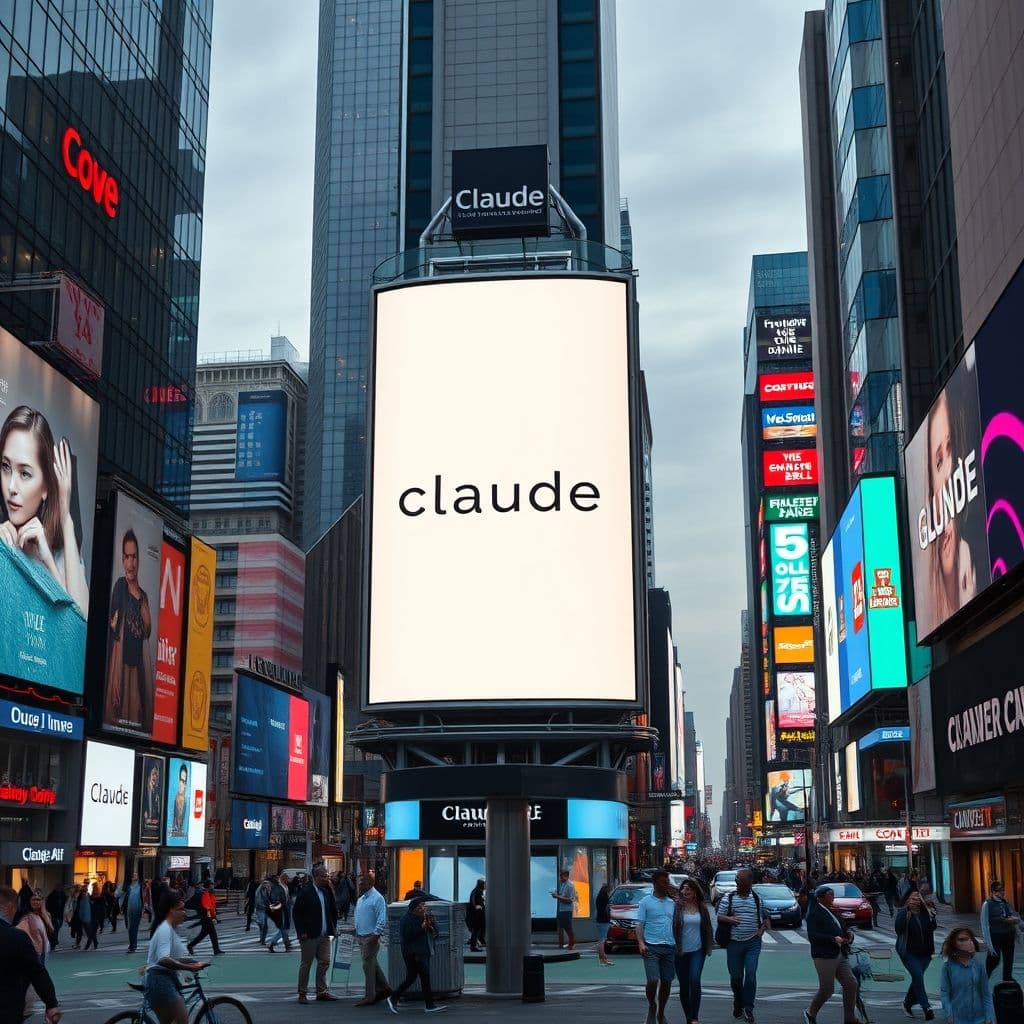Why AI Marketing Fails and How a SaaS Solution Could Fix It

AI products like Claude are struggling to communicate their value to the general public. Their confusing billboard ads have left many scratching their heads, wondering if they're promoting a perfume or a tech tool. This disconnect highlights a critical problem in AI marketing—how do you explain complex technology in a way that resonates with everyday users? Let's explore the issue and imagine a SaaS solution that could bridge this gap.
The Problem: Confusing AI Marketing
The recent Claude billboard campaign is a prime example of marketing gone wrong. With slogans like 'A jetpack for your thoughts' and 'Intelligence so big you'd swear it was from Texas,' the ads failed to convey what Claude actually does. Many viewers thought it was a skincare brand or even a new perfume. This confusion stems from a lack of clear messaging that connects with the target audience. The ads were designed for an insider crowd—tech-savvy individuals already familiar with AI—but completely missed the mark for the general public.

Idea of SaaS: AI-Driven Marketing Optimization
Imagine a SaaS platform that audits and optimizes marketing campaigns for tech companies, especially those in the AI space. This tool would analyze existing marketing materials, identify confusing or ineffective messaging, and suggest improvements based on data from successful campaigns. It could use AI to simulate how different demographics would interpret the messaging, ensuring clarity and resonance with the target audience.
Key features of this hypothetical SaaS could include: audience segmentation analysis, A/B testing for ad copy, competitor benchmarking, and real-time feedback on messaging effectiveness. By leveraging AI, the platform could predict which slogans, visuals, and channels would perform best, helping companies avoid costly marketing missteps like Claude's billboards.

Potential Use Cases
This SaaS solution could be invaluable for AI startups struggling to explain their products to non-technical audiences. It could also help established tech companies rebrand or launch new features, ensuring their messaging is clear and compelling. Even traditional businesses adopting AI tools could benefit from this platform to communicate the value of their tech investments to customers and stakeholders.
Conclusion
The Claude billboard debacle underscores a critical challenge in tech marketing: making complex products accessible to everyone. While the idea of an AI-driven marketing optimization SaaS is still hypothetical, it represents a promising solution to a growing problem. By combining data-driven insights with user-friendly tools, such a platform could help tech companies avoid costly missteps and connect more effectively with their audiences.
Frequently Asked Questions
- How viable is developing this SaaS idea?
- The concept is technically feasible given current AI capabilities in natural language processing and marketing analytics. The main challenges would be gathering sufficient training data from successful campaigns and ensuring the platform's recommendations align with brand identities.
- Could this SaaS replace human marketers?
- No, it would serve as a tool to augment human creativity and strategy, not replace it. The platform would provide data-driven insights, but final decisions would still require human judgment and brand expertise.
- What industries could benefit most from this solution?
- While initially targeted at AI companies, any tech sector with complex products (like cybersecurity, blockchain, or biotech) could benefit. Even traditional businesses adopting digital transformation could use it to explain new technologies to customers.


